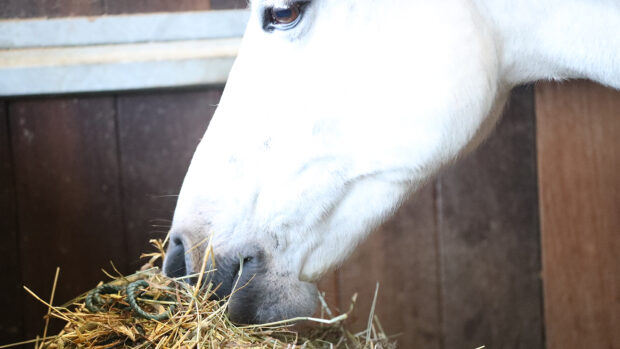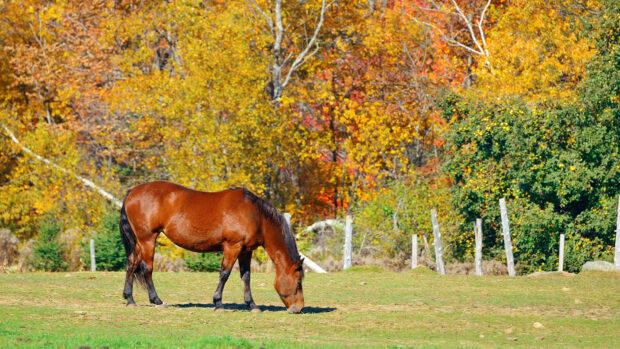Promotional Feature with Petplan
Ensuring a horse maintains peak health and condition all year round relies on a multitude of factors, but there are certain essentials all horse owners should be aware of, from weight management to diet changes, as Petplan Equine’s veterinary expert Gil Riley explains
1. Ensure a consistent diet and access to water
It’s very important for a horse to have a settled diet, and access to clean, fresh water 24/7.
“Any changes to the diet must be made gradually, without rushing it. A horse relies on millions of microbes that are tuned to certain ratios, and if you make a sudden change you disrupt these microbes, and can cause spasmodic colic,” explains Gil, who emphasises the importance of remembering this even when other aspects of a horse’s routine might change, for example while staying away at a show.
2. Put in place a good worm control programme
“Owners should follow an informed worming programme,” says Gil, who explains that while many people are not worming their horses enough, others are worming excessively and exposing their horses to wormer they don’t need, which can lead to worms building up resistance against worming treatments.
“A worm egg count test is a very good gauge of adult worm counts and worm counting should be carried out at three-month intervals throughout the year, preferably in February, May and August,” says Gil, who adds that all horses must be treated for encysted small redworm in November.
“It’s also really important to be poo-picking the horse’s pasture on a daily basis where possible, and at least twice a week.”
3. Make sure your horse’s vaccinations are up to date
“Keeping on top of your horse’s vaccinations for equine flu and tetanus is imperative. This year’s flu outbreak has reminded owners that flu is not a vaccine, flu is a virus — many never really thought about what the vaccine was for, as the virus itself was not considered a real threat,” points out Gil.
“Giving your horse the flu vaccine does not guarantee he won’t get flu, but it means that if he does he will have much milder symptoms compared to a horse who has not been vaccinated,” he adds, also emphasising that even horses who do not travel or compete should be vaccinated against equine flu and receive an annual booster.
4. Know what’s normal for your horse
Make sure you know how to check your horse’s vital signs, and what the normal ranges for a resting horse are:
Temperature — 36.5-38C
Pulse — 30-40 beats/minute
Respiration — 8-12 breaths/minute
Also, get to know what is normal for your horse, so you can identify potential problems.
“It’s important to measure your horse’s pulse, temperature and respiration rate regularly, so that you get to know what is normal for your horse,” says Gil, who advises taking these measurements in the morning, when your horse is settled and at rest.
5. Understand how to monitor your horse’s weight
It’s essential that your horse maintains a healthy weight. There are a number of methods owners can use to keep on top of their horse’s condition and weight, such as body condition scoring and using a weight tape.
“Owners should measure their horse once a week before he has his breakfast,” advises Gil. “You can use a weight tape, or even baler twine, to position around the same point of a horse’s girth. Try to use a marker of some sort to check you are measuring in the same spot each time — a specific patch of hair, or freeze mark for example — so you can track any changes to your horse’s weight.
“It’s also a good idea to regularly take photos of your horse, so you can spot any variations.”
Find out more about Petplan Equine insurance and how it could help you prepare for the unexpected while enabling you to provide the best possible care for your horse, in case of illness or injury




